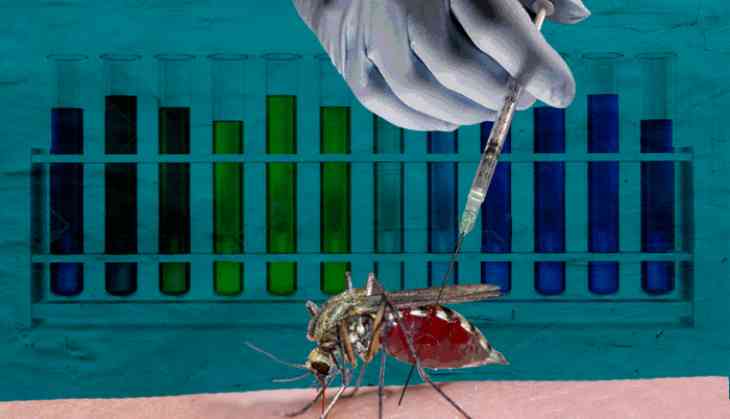
Researchers say they have developed an innovative new system for delivering a malaria vaccine that shows promise in its effectiveness.
By developing a vaccine that targets specific cells in the immune system, researchers from the University of Chicago in the US saw a much greater immune and antibody response to the vaccine.
Though a vaccine for malaria exists, it is only effective in 30 to 50 per cent of patients, and malaria is still responsible for nearly 500,000 deaths annually, according to the US Centers for Disease Control.
"When compared to the current malaria vaccine option, our results are extremely exciting," said Jeffrey Hubbell, a professor at the University of Chicago.
"This work could potentially have applications in vaccinations against complex infections and cancer," Hubbell said.
Effective vaccines for many complex infections, like malaria, remain elusive because they require both protection against pathogens and specialised immune cells to clear infected cells.
In the study published in the journal Nature Materials, researchers describe several strategies for generating immunity in patients.
One of the safest and easiest vaccine platforms is the subunit vaccine.
Researchers take proteins derived from the pathogen, called antigens, and formulate them with a compound called an adjuvant that induces a pro-inflammatory response.
In the body, the antigen introduces the disease to the immune system, while the adjuvant activates pathogen-specific T cells, which help clear infected cells.
This type of vaccine is used for whooping cough, HPV and malaria, researchers said.
While the field has developed subunit vaccines with effective antigens, researchers have found less success with adjuvants, mainly because it is difficult to localise their delivery to the right location within the body.
If such molecules are not targeted, they can cause inflammation throughout the body, which can be fatal, researchers said.
Hubbell and his colleagues approached this problem as a delivery issue.
To deliver the vaccine to its intended target, they developed a vaccine platform made up of a polymeric adjuvant -- which contains multiple adjuvant molecules connected like pearls in a necklace --coupled with an antigen.
This platform can easily drain into the secondary lymphoid tissues.
To make sure it found its way to the intended site, they incorporated mannose, a type of sugar, into the polymeric adjuvant.
Since viruses and bacteria tend to have a lot of sugar on their surfaces, the dendritic cells in the lymphoid tissues have several sugar receptors that help in the recognition of pathogens.
Once the mannose-laden vaccine is injected into the body, it targets specific immune cells called dendritic cells, which in turn activate T cells.
By specifically targeting dendritic cells, this new technology prevents systemic inflammation while efficiently activating an immune response, researchers said.
"It's a targeting material, but it is also inherently therapeutic," said D Scott Wilson, a postdoctoral researcher in Hubbell's lab.
When tested, the vaccine system had a higher antibody response than the malaria vaccine currently on the market. It also provided a cellular response -- clearing the infected cells -- which the current vaccine does not do.
Researchers have now partnered with Emory University in the US to continue testing the system and hope to develop similar models for cancer and flu vaccines.
-PTI







![BJP's Kapil Mishra recreates Shankar Mahadevan’s ‘Breathless’ song to highlight Delhi pollution [WATCH] BJP's Kapil Mishra recreates Shankar Mahadevan’s ‘Breathless’ song to highlight Delhi pollution [WATCH]](https://images.catchnews.com/upload/2022/11/03/kapil-mishra_240884_300x172.png)

![Anupam Kher shares pictures of his toned body on 67th birthday [MUST SEE] Anupam Kher shares pictures of his toned body on 67th birthday [MUST SEE]](https://images.catchnews.com/upload/2022/03/07/Anupam_kher_231145_300x172.jpg)






